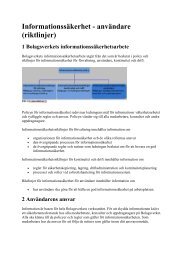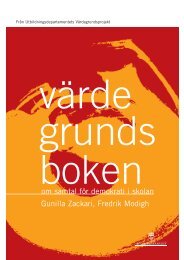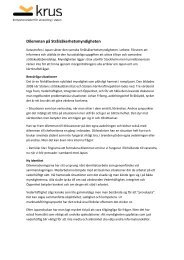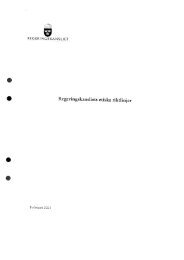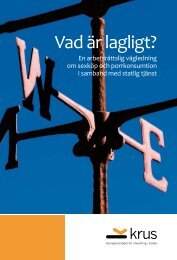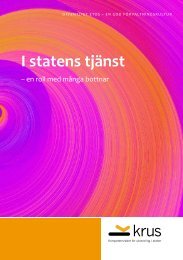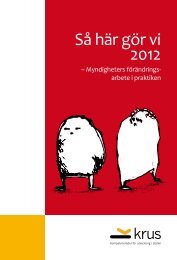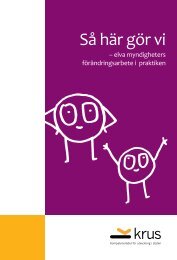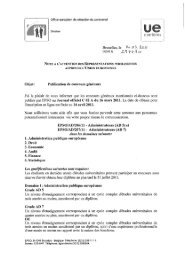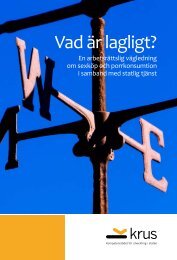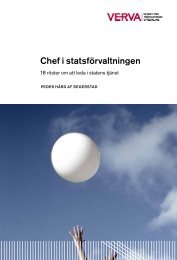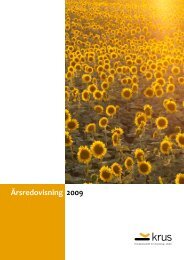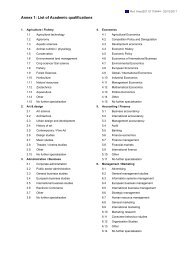Dialogkompetens i skolans vardag - Publikationer - LTU - Luleå ...
Dialogkompetens i skolans vardag - Publikationer - LTU - Luleå ...
Dialogkompetens i skolans vardag - Publikationer - LTU - Luleå ...
Create successful ePaper yourself
Turn your PDF publications into a flip-book with our unique Google optimized e-Paper software.
ENGLISH SUMMARY<br />
The framework of the study<br />
The research in the present study was made in the context of a national school<br />
improvement project 42 . In this project I have cooperated with fifty teachers working<br />
in schools where all the pupils are hard-of-hearing. The pupils use hearing<br />
aids and they also need access to audio technical equipment in the classroom. The<br />
initial problem area concerned the situation that the existing audio technical<br />
equipment controlled the communication in the classroom. The technology contributed<br />
to the conversations being largely directed at the teacher, which in turn<br />
led to a more passive attitude to communication among the pupils. Sometimes this<br />
problem is seen lying in the pupils (Atterström & Persson, 2000); hard-of-hearing<br />
pupils cannot enter into a dialogue with their classmates. One of the intentions of<br />
the thesis is to emphasise the opposite view. With suitable conditions in the environment,<br />
all pupils can develop different ways of participating in a dialogue. Such<br />
conditions vary, however, since there is no environment that is optimal for all<br />
hard-of-hearing pupils.<br />
In order to be able to combine research, development and change, I chose an action<br />
research approach. Action research implies a dual purpose, finding new<br />
knowledge and changing participants’ practice in order to improve conditions, in<br />
this case the learning environment of the pupils. ‘New knowledge’ here refers<br />
both to knowledge tested in scientific contexts and knowledge developed in practice.<br />
To me the work has meant an opportunity to do research with teachers, close<br />
to practice. In practice the research was done in parallel with the teachers’ improvement<br />
work. We were dependent on one another and my research questions<br />
arose from the questions that were central to the participants. This meant that a<br />
participatory perspective developed as the work went on.<br />
The aim of the thesis is to illuminate and describe dialogues among different actors<br />
in a national school improvement project. The actors in this context are teachers<br />
in hard-of-hearing classes, their pupils and myself as a researcher. In order to<br />
elucidate the foci of the substudies, the aim was reformulated as questions. The<br />
research questions investigated in the respective substudies are:<br />
42 The “Dialogue Project” (Dialogprojektet) www.dialogprojektet.se<br />
91



